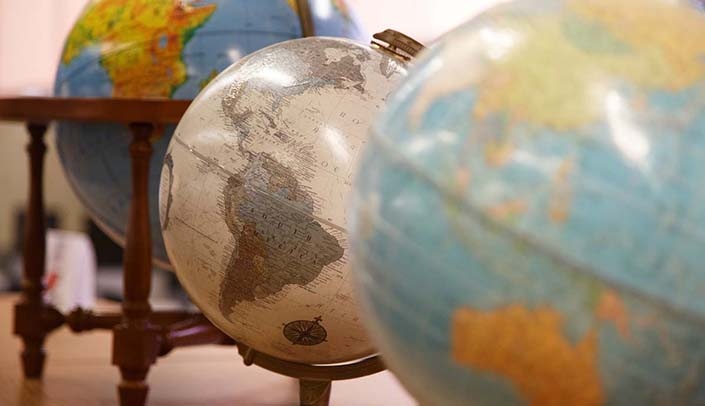University of Nebraska faculty members can learn how to structure their education abroad opportunities so students get a better and fuller international experience at free workshops in Omaha and Lincoln this week.
The workshops, hosted by the University of Nebraska, will provide both theoretical foundations and practical tools for incorporating intercultural learning into courses and study abroad programs. They will be useful for faculty who are new to study abroad program design and implementation, for seasoned study abroad program directors seeking to enhance existing programs, and for all others with an interest in intercultural competence development in students.
The two workshops on intercultural learning through education abroad will be held at the:
- University of Nebraska at Omaha
Thursday, 9 a.m. – 4 p.m.
Milo Bail Student Center, Omaha Room (MBSC 304)
- University of Nebraska-Lincoln
Friday, 8 a.m. – noon
Love Library South, Peterson Room (LS221)
Both workshops will explore how students can:
- Engage with their host communities when studying internationally.
- Gain transferable intercultural competencies through this experience.
Faculty and staff also will learn how they can effectively intervene in the student learning process to facilitate intercultural competence development both while abroad with students and in a campus-based classroom.
Research on education abroad demonstrates the central role of ‘cultural mentoring’ to help students develop intercultural awareness and competence, especially as they study and live in increasingly diverse environments, and engage in the global workplace after graduation.
These workshops are designed to be a hands-on, active learning environment in which all participants are actively engaged. By the end of the workshop, faculty will:
- Gain a foundation in intercultural concepts and theories to help you and your students understand cultural similarities and differences.
- Examine your own cultural background and its relevance and impact on thought, behavior and experience.
- Recognize common myths about intercultural learning abroad.
- Begin to identify ways to incorporate intercultural learning into your classes and work with students.
- Identify common obstacles that hinder intercultural learning in study abroad programs.
Facilitators will be Tara Harvey, Ph.D., a 15-year veteran in the field of international/intercultural education, and Steven Duke, Ph.D., associate vice president for Global Strategy and International Initiatives at the University of Nebraska.
